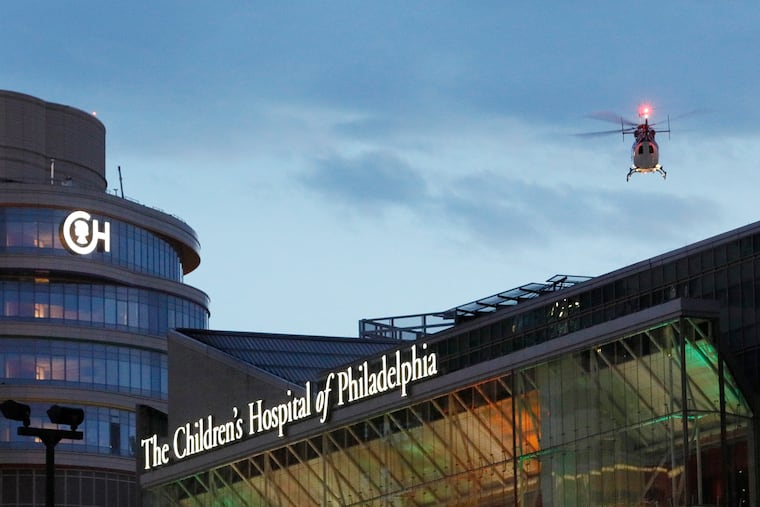CHOP’s beds are overflowing, but not because of COVID-19
Pandemic fallout continues to play out in unexpected ways.

Children’s Hospital of Philadelphia currently has fewer than a dozen COVID-19 inpatients, but the preeminent 585-bed pediatric facility is nonetheless filled to overflowing because of the pandemic.
“What we are seeing is definitely unprecedented,” said Ron Keren, CHOP’s chief medical officer. “We didn’t expect how bad it was going to be.”
For the last few months, CHOP’s occupancy rate has been at record-high levels, mostly because of non-COVID-19 respiratory illnesses, and mental health crises. On several occasions, the hospital ran out of beds and had to put inpatients in rooms normally used for treatment or postoperative recovery.
The surge is clearly traceable to the pandemic. Children who were hunkered down in relatively aseptic conditions -- away from school and friends, donning masks to go out in public -- didn’t get seasonal sicknesses last year, but they also didn’t build immunity to those viruses. Now that kids have resumed more normal lives, hospitals across the country are seeing an unusually big, early surge of sickness, particularly respiratory syncytial virus (RSV).
“There’s this concept of an ‘immunity debt,’” Keren said. “Kids haven’t been exposed to these viruses for going on two years, so they are vulnerable. It makes it easier for the virus to spread quicker.”
RSV usually causes coldlike symptoms, and almost all children get the infection by age 2. But it can be dangerous for premature infants, babies less than 6 months old, and children with certain congenital or lung diseases.
In response to the atypical spike in RSV, the American Academy of Pediatrics recently recommended that doctors consider giving high-risk infants a monoclonal antibody called palivizumab to prevent RSV infection.
“We normally don’t roll it out until later, but we have begun giving it to the small subset of infants who are eligible,” Keren said.
There is a much more important protective measure for all children over 6 months: a flu shot.
“The flu is much worse than COVID-19 for kids. I’m concerned about what we are going to see in the next few months with flu. It could be nastier than RSV. Get the flu vaccine now,” Keren said, adding that all adults and children 12 and up should also get a COVID-19 vaccine.
The other pandemic-related surge in pediatric hospitalizations has made a bad shortage worse. Adolescents and younger children who are struggling with severe anxiety, depression, even suicidal thoughts, have few places to go for inpatient treatment. The same is true tor children with conditions such as autism that can cause behavioral problems; the losses, disruptions, and isolation of the pandemic can worsen those problems.
“CHOP is not an inpatient psychiatric facility,” Keren said. “We can manage children and keep them safe, but we don’t have the infrastructure and are not licensed to treat them. But there is just not enough [treatment facility] capacity in the community, so they often end up staying in the hospital longer than we and the families would like.”
That situation should improve, at least a little. CHOP plans to open a 46-bed psychiatric unit in the new PHMC Public Health Campus on Cedar, a 600,000-square-foot property under development at 501 S. 54th St. in West Philly.